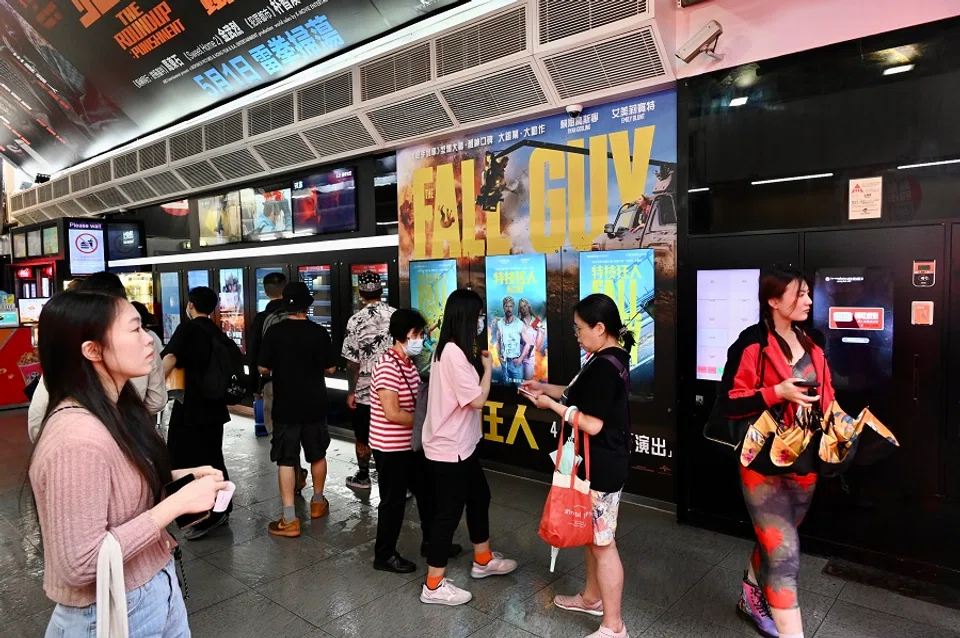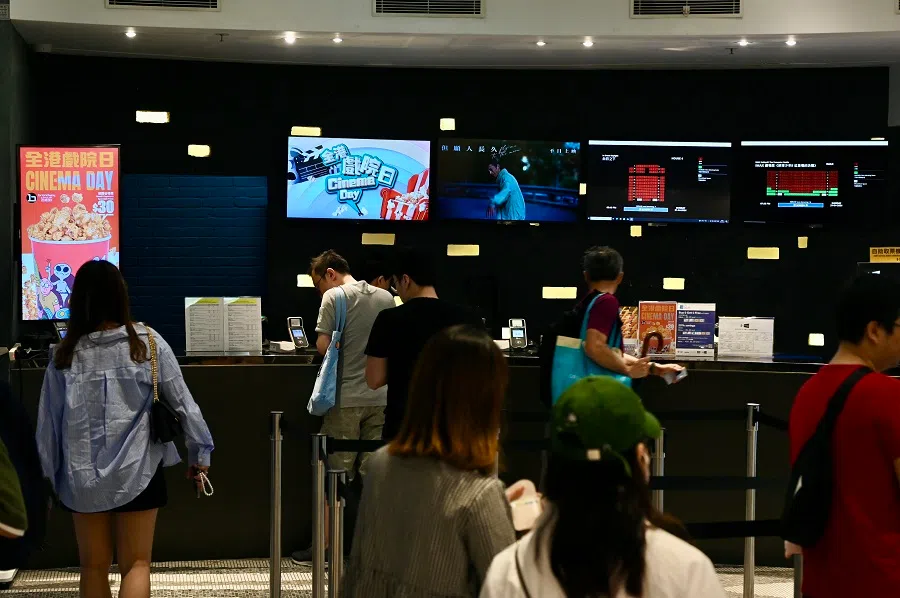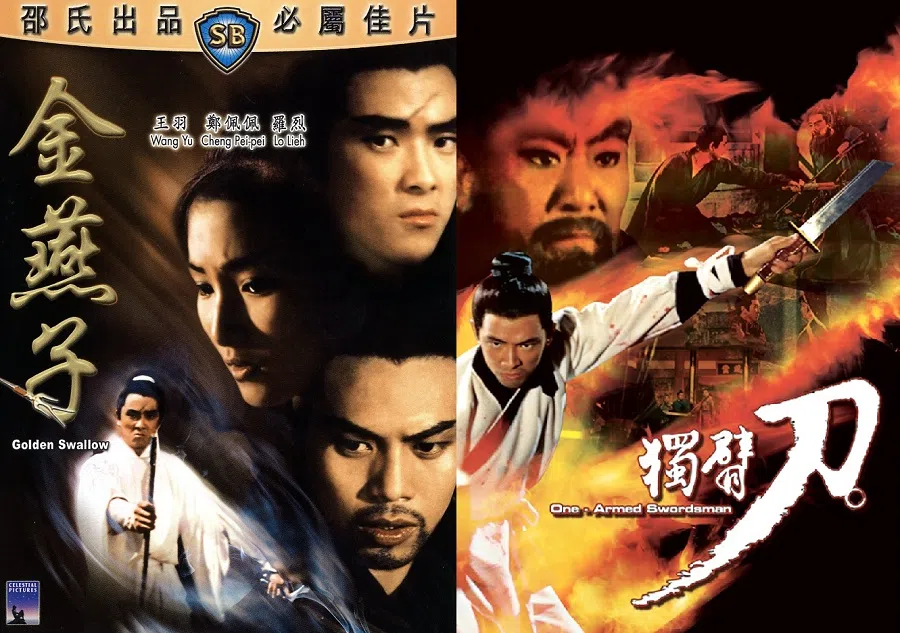How should the Hong Kong film industry overcome its difficulties?
Lianhe Zaobao journalist Tai Hing Shing notes the once thriving Hong Kong film industry is mired in troubles. From changing consumer habits to the sorry state of screenwriters, Hong Kong’s film industry may need a more policy-based approach to see a revival.

In 2022, Hong Kong’s film industry welcomed an unprecedented success, after two years of detrimental impact from Covid-19. During the year, many locally directed Hong Kong films became acclaimed box-office hits, successively grossing more than HK$10 million (US$1.3 million), greatly boosting the confidence of the industry.
In hindsight, however, the impetus of Hong Kong films in 2022 seems to be a flash in the pan.
The biggest reason is the change in the manner of consumption. Currently, a film can be viewed on various streaming platforms soon after its release in the cinema, and this affects the moviegoers’ willingness to watch them in cinemas.
Declining revenues and cinema closures
According to the data released by Hong Kong Box Office Ltd. at the start of 2024, the box office revenue of Hong Kong films in 2023 reached only HK$1.43 billion, a drastic decline of 25% compared with HK$1.92 billion in 2019 before Covid-19, regressing to the 2011 level of HK$1.4 billion. This indicates that the Hong Kong film industry remains in the doldrums.
The company analysed that there were various reasons for the decline in the box office revenue of Hong Kong films, namely the increase in outbound travel after Covid-19 and the dearth of choice of films due to stoppages in filming during the pandemic.
The biggest reason is the change in the manner of consumption. Currently, a film can be viewed on various streaming platforms soon after its release in the cinema, and this affects the moviegoers’ willingness to watch them in cinemas. Typically, only dating couples will go to the cinema and most people will usually view online videos on their mobile phones due to an increasingly busy urban lifestyle. This has posed more difficulties for the film industry.

There is no sign of the industry arresting the box office decline in 2024. The Hong Kong Theatres Association organised another “Cinema Day”, with discounted ticket prices for movies on 21 April going for HK$30 at all cinemas in Hong Kong to attract moviegoers.
Due to its popularity, the ticketing websites of some cinemas crashed due to network congestion on the first day of ticket sales on 17 April. Despite torrential rains on “Cinema Day 2024” itself, the spirit of the moviegoers was not dampened. A total of 203,000 people watched films in the cinemas on that day, setting a record for the highest attendance on a Sunday.
Although “Cinema Day” successfully boosted the viewing of movies in the cinema, its benefit to cinemas and the overall film industry is limited as it is a once-off event after all. On the same day, the Golden Harvest Kai Tak Cinema in San Po Kong announced its immediate closure as its lease had expired. A week or so later, Newport Circuit also announced that its President Theatre at Causeway Bay would close on 30 April.
Having operated for more than half a century, the news of the closure of President Theatre at Causeway Bay surprised many Hong Kong people. Many in the industry have lamented its closure and pointed out that President Theatre owns the property, where the nearby footfall is high. The choice to end its business undoubtedly raises a warning that the cinema business is a far cry from the days past.

On 29 April, a politician familiar with the film industry was quoted by Hong Kong media, further emphasising that the Hong Kong government should reconsider supporting the film industry’s development through policy. Objectively, however, there are currently many reasons for the reluctance of Hong Kong moviegoers to patronise the cinema, and simply supporting the cinemas cannot arrest the situation.
As most Hong Kong screenwriters are freelancers, they are paid only after the screenplays are approved by the movie investors and hence lead extremely unstable lives.
Glimpse of the industry
I remember that a classmate and I boldly wrote to the Hong Kong Film Directors Guild when we worked on an assignment on Hong Kong kungfu movies in middle school in the late 1990s. We were hoping to contact the famous director Chang Cheh, who is known as the “million-dollar director”, for an exclusive interview. Chang actually replied and agreed to an interview. Sometime later, I was hired as his personal assistant after school.
China Star Entertainment Limited, founded by film producer Charles Heung, was then preparing to make at least 100 films within three years and invited Chang, who had retired for a number of years, to make a comeback as a consultant. The ambitious Chang searched high and low for screenwriters. Among them, one had won the Best Screenplay Award at the Hong Kong Film Awards but had since led a destitute life due to a car accident.
Despite Chang’s repeated urging and much to his anxiety, this screenwriter had not handed in the first draft of a screenplay. Chang later issued an advance cheque for a considerable sum and I was tasked to deliver it to the screenwriter at home and watch over him as he wrote the screenplay. Despite his annoyance, the screenwriter accepted the cheque and started working, throwing several curses while he wrote. This has remained vivid in my mind even now.
Improving treatment of screenwriters
This incident not only shows the lack of quality of the screenwriter but also reflects the sorry state of the Hong Kong screenwriter profession. As most Hong Kong screenwriters are freelancers, they are paid only after the screenplays are approved by the movie investors and hence lead extremely unstable lives.
... another fatal shortcoming is that the industry is resting on its laurels and is crudely and banally making formulaic films.

The Hong Kong media has reported that the screenwriters’ system appears not to have changed much after all these years. With the exception of full-time screenwriters at a TV station or film company, there is no income safeguard for the typical screenwriter, who could very easily become embroiled in income disputes.
In recent years, the Hong Kong film production volume has gone from bad to worse, dropping drastically to less than 100 films compared with the peak annual volume of several hundreds. Undeniably, it is becoming a sunset industry.
Industry practitioners agree that another fatal shortcoming is that the industry is resting on its laurels and is crudely and banally making formulaic films. Failing to rouse moviegoers’ desire to watch these films, some of the cinemas with low attendance naturally have to wind down. To some extent, the lack of creativity in Hong Kong films is related to the screenwriters’ system. Screenwriters cannot focus on producing good screenplays when they are unable to bring food to the table.
Still, with the talents in the Hong Kong film industry, it is not difficult to make creative Hong Kong films as long as there are improvements to the remuneration and treatment of screenwriters. It is high time for the film industry to consider how to improve the screenwriters’ system to enhance the industry’s competitiveness.
This article was first published in Lianhe Zaobao as “香港电影业如何走出困境?”.





